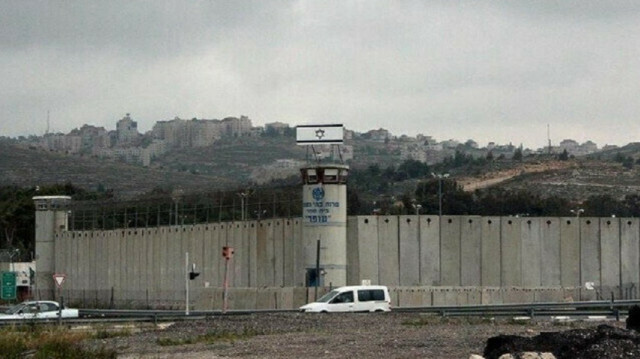Israeli forces demolished Latifa Abu Humaid's home in Al-Amari Refugee Camp 6 times since 1994
March 21, 2022

File photo
On the main road near the entrance to Al-Amari Refugee Camp in the West Bank city of Ramallah, Latifa Abu Humaid, 73, staged a sit-in together with dozens of other Palestinians to protest the continued detention of her son Nasser, who is in critical condition after recently being diagnosed with lung cancer.
On Mother's Day, which large parts of the Middle Eastern countries celebrate on March 21, she is alone because five of her sons were imprisoned by Israeli occupation forces on various charges between 2003 and 2017.
One of her sons was killed in 1994, and one is not living with her because he is afraid of arrest since he has previously been held in administrative detention by Israeli authorities several times.
It has been almost 20 years since Israeli authorities began imprisoning her five children one by one, said Abu Humaid, adding, "since 2003, all the family members have never gathered on any occasion... and this is really painful."
During their absence, she lost her husband and her home in the camp has been demolished six times.
In 1994, the Israeli army destroyed her home for the first time, killing her son Abdel-Munem Abu Humaid, a member of the Al-Qassam Brigades, the Hamas resistance group's military wing.
After that, her other sons were arrested during the second Palestinian Intifada, and she used to visit them for 45 minutes every month at Ashkelon Prison in central Israel.
"Since my son Islam's imprisonment at the end of 2017, the Israeli authorities have been putting my sons in different jails, which is additional punishment for the family," she lamented.
Since the beginning of the COVID-19 pandemic, she was not able to visit them due to the Israeli measures, and because of health issues, it became very difficult for her to visit five different prisons every month.
During these years, Abu Humaid tried all the time to support her sons from outside the prisons by attending protests to support Palestinian inmates.
In April 2017, she went on a 40-day hunger strike to support her four imprisoned sons out of five, who were joining a hunger strike with over 1,500 other inmates to protest Israeli restrictions on their lives.
She recalled that her oldest son, Nasser, was 13 when he was arrested for the first time. Nasser is now 49, and according to his mother, since his first detention, the total amount of time he has spent with his family is just around a year.
Nowadays, Abu Humaid lives with serious concerns about her son's health, since there is no connection with him and the Israeli occupation still bans her from visiting him in the hospital at Al-Ramla Prison.
“Where they are holding him now isn’t a hospital. It’s a place for death, not for treatment,” she told Anadolu Agency.
Abu Humaid has never been allowed to be with her son during his illness and has been banned from any connection with him.
“Everything I know about him is through his lawyers. They told me that he can’t remember many details. They told me that he can’t remember the names of his brothers,” she added.
She said she was allowed to visit her son two months ago when he was in a coma at Barzilai Medical Center in Ashkelon in southern Israel under heavy guard by the Israeli authorities, who forced her to stand two meters away from him.
“When I saw all this, I told them this was a military barracks, not a hospital,” she said.
Still waiting for her sons to return home after more than 19 years, she continues to appeal to the free world and the Palestinian resistance to help free her ailing son and other sick prisoners languishing in the Israeli jails.
No comments:
Post a Comment